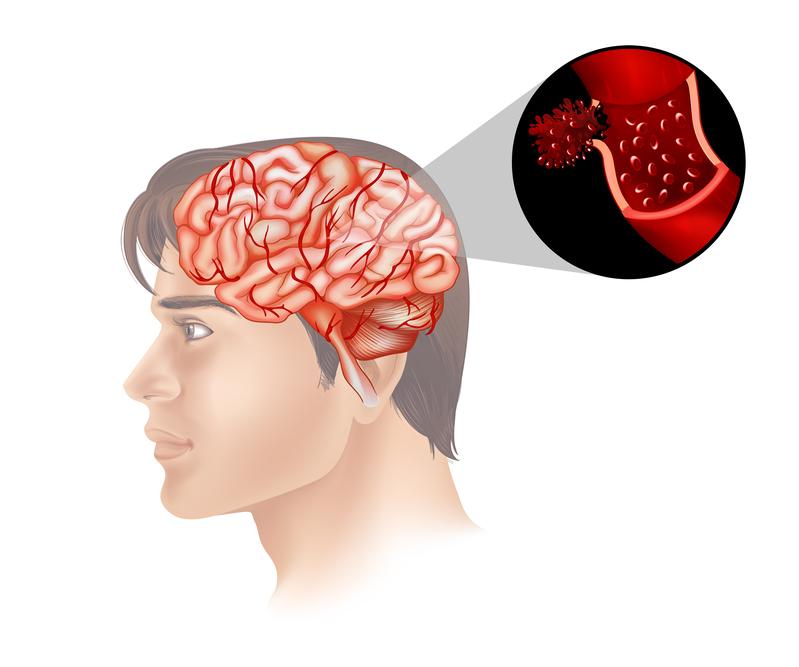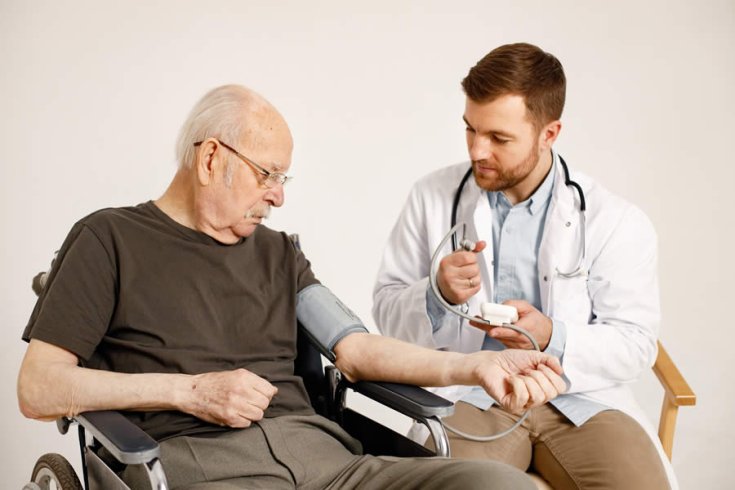Strokes are medical emergencies that demand immediate attention and action. They are a leading cause of serious disability and can strike without warning, with devastating consequences. Yet, with the right information, early intervention, and ongoing care, the risks associated with strokes can be drastically reduced. At Capitol Cardiology Associates, we want to help you recognize stroke symptoms so you can stay protected.
Different Types of Strokes
A stroke occurs when the blood flow to the brain is interrupted, which deprives it of the oxygen and nutrients it needs. This interruption can happen for a variety of reasons, which include:
- Ischemic Stroke: Ischemic strokes occur when a blood clot or other obstruction blocks blood flow to the brain. This type of stroke is usually linked to atherosclerosis, a condition where fatty deposits build up in the walls of blood vessels and restricts circulation. Risk factors for ischemic strokes include high cholesterol, smoking, diabetes, and uncontrolled high blood pressure.
- Hemorrhagic Stroke: A hemorrhagic stroke happens when a blood vessel in the brain bursts and causes bleeding within or around the brain. While less common than ischemic strokes, hemorrhagic strokes are more severe and associated with chronic high blood pressure, head injuries, or aneurysms. The sudden bleeding creates pressure in the brain that can lead to life-threatening complications.
- Transient Ischemic Attack: Sometimes referred to as a “mini-stroke,” a TIA is a temporary blockage of blood flow to the brain that typically resolves within minutes or hours. While symptoms may disappear quickly, a TIA should never be ignored. It is a warning sign of an impending stroke and requires immediate medical evaluation to identify and address underlying risk factors.
Understanding the type of stroke is crucial because it dictates the course of treatment. Ischemic strokes may require clot-dissolving medications, while hemorrhagic strokes might need surgical intervention. A heart doctor can provide guidance on risk reduction, and working with a trusted cardiologist can ensure you’re managing the conditions that contribute to stroke.
Spotting the Warning Signs of a Stroke
The signs of a stroke can appear suddenly and vary depending on the part of the brain affected. Recognizing these signs and acting quickly can make a massive difference in the outcome. Common symptoms include:
- Weakness or Numbness: A sudden onset of weakness, usually on one side of the body, like the face, arm, or leg.
- Trouble Speaking: Difficulty forming words, slurred speech, or trouble understanding others.
- Vision Problems: Sudden vision loss, blurry vision, or double vision in one or both eyes.
- Severe Headache: An intense, abrupt headache accompanied by nausea or vomiting.
- Dizziness or Loss of Balance: Difficulty walking, loss of coordination, or feeling lightheaded.
Risk Factors and Prevention Strategies
While some risk factors for stroke are beyond our control, many can be managed or reduced through lifestyle changes and medical care. Identifying and addressing these factors is an important part of prevention.
- High Blood Pressure: High blood pressure damages blood vessel walls, and makes them more prone to blockages or ruptures. Routine checkups with a cardiologist can help you monitor and control your blood pressure.
- Smoking and Alcohol Use: Smoking increases the risk of blood clots and damages blood vessels, while heavy alcohol consumption raises blood pressure and can lead to irregular heart rhythms. Quitting smoking and moderating alcohol intake can substantially reduce stroke risk.
- Chronic Health Conditions: Conditions like diabetes, high cholesterol, and atrial fibrillation are closely linked to strokes. Proper management of these conditions, including medication and regular monitoring by a heart doctor, is a must.
- Poor Diet and Sedentary Lifestyle: Diets high in sodium, sugar, and unhealthy fats contribute to high blood pressure and obesity, which increase stroke risk. Incorporating whole grains, fruits, vegetables, lean proteins, and regular exercise into your routine can improve your cardiovascular health.
- Stress Management: Chronic stress can negatively affect heart health and blood pressure. Incorporating mindfulness, relaxation techniques, and adequate sleep into your daily life can help lower stress levels and protect your health.
The Path to Recovery and Rehabilitation
Recovering from a stroke can be a challenge, but with the right support and resources, many individuals regain independence and improve their quality of life. Stroke recovery typically involves:
- Physical Therapy: To rebuild strength, mobility, and balance. Therapy focuses on restoring motor skills and overcoming physical limitations caused by the stroke.
- Speech Therapy: For individuals who experience difficulty with speaking, understanding, or swallowing, speech therapy provides exercises that improve communication and swallowing abilities.
- Occupational Therapy: This form of therapy helps stroke survivors relearn daily activities such as dressing, cooking, and using tools to regain independence.
- Medication Management: Blood thinners, cholesterol-lowering drugs, and antihypertensives may be prescribed to reduce the risk of another stroke.
- Emotional Support: Strokes can impact mental health and lead to anxiety, depression, or frustration. Support from counselors, family, and peer groups is invaluable during recovery.
Continued follow-up care with a heart doctor or cardiologist ensures that risk factors are managed and complications are avoided. With time, effort, and the right care team, many stroke survivors achieve meaningful recovery.
Are You Concerned About Strokes?
Capitol Cardiology Associates is here to help you achieve better cardiovascular health. Our cardiologists in Laurel leverage advanced diagnostic tools and treatments to provide the best possible care for our patients. Whether you are seeking to lower your stroke risk, recover from a cardiovascular event, or want to maintain your heart health, we are here to guide you every step of the way. Contact us to schedule a consultation.






